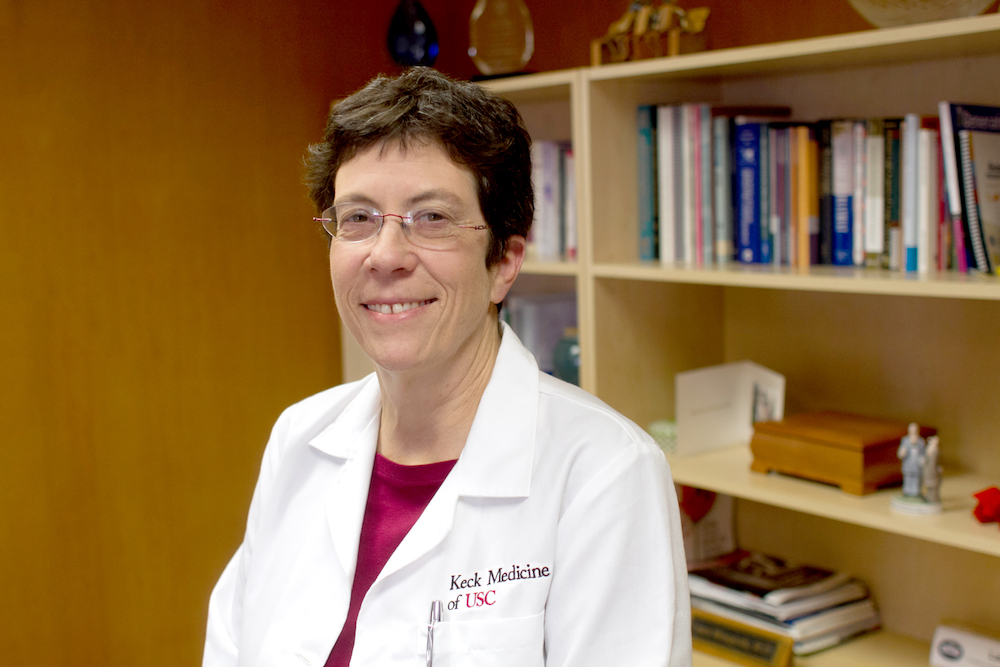
Dr. Mosqueda is a family medicine and geriatrics physician at Keck Medicine of USC, who is a widely respected authority on geriatric and family medicine, elder abuse, and care of the elderly and underserved.
Here’s what you won’t find on her resume.
She believes her job is to help her patients be their best.
“My job is about helping people be their best. This means I need to understand what is most important to each of my patients, since this varies from person to person. It allows me to connect with my patients in a personal way and help them make medical decisions that align with their values. We need to understand treatment options in the context of each person and whether or not it makes sense for them. My job as their primary care doctor is to be up to date on the best science and to be their advocate in helping them figure out what is best for their lives.”
She and her husband are avid scuba divers.
“My father began scuba diving in the 1950s before any of the current technology was available and he always loved it. I had never taken it up but then in the late 1990s, my husband and I became certified divers. We do a lot of diving out here off the California coast and around the world.”
She enjoys travel plans with a bit of adventure.
“A few years ago, my husband and I went to Rwanda and saw the lowland gorillas, which was a lifelong dream. A lot of our adventure travel has included scuba diving. We’ve gone diving in Indonesia and then we’ve gone canoeing in Borneo to see the orangutans. We’ve been to New Guinea, and, this summer, we were in the Galapagos, which was great.”
For her, geriatrics and family medicine were a natural fit.
“Even as a child, I had a natural sense of alignment with older adults. I was very close to my grandparents, and I’ve always enjoyed talking to and interacting with older adults. Family medicine makes sense philosophically for the care of older adults because it is patient-centered and family-focused. You need to understand medical issues well, but you also have to understand psychosocial issues. You have to understand patients in the context of their whole environment – their physical, emotional and social environment.”
Her research is focused in the area of elder abuse.
“When I was a geriatric fellow, I had a patient who had been abused. I was very distraught over the lack of response when I contacted agencies to try to help her. Then, I learned that physicians (meaning me!) were a part of the problem and so it led me to become interested in how I could be part of the solution instead.
Much of my research is focused in trying to understand why abuse of the elderly occurs, how to identify and intervene at an early stage and what to do to prevent it. Some of our research focuses on how to distinguish a forensic marker of abuse from some of the common issues we see in elders, such as bruises and hip fractures. Our research spans from basic science issues to social science issues. We’re looking at how to identify abuse, but we’re also looking at how to prevent it and how to make policy changes that will afford more protection.”
She attended the Keck School of Medicine of USC.
“I was born and raised in Los Angeles. I have strong ties to USC. My mother and father both went to the Keck School. My mother was a radiologist specializing in mammography, and my father is a gastroenterologist.
When I was a medical student at the Keck School, the chair of family medicine was Peter Lee, who is a remarkable human being. He is the epitome of a family doctor. One of the reasons I came back is because there’s a commitment to primary care and a commitment to family medicine and geriatrics, both on the clinical and the academic sides. That’s very exciting to me. I think it’s also a way to honor Dr. Lee.”
View Dr. Mosqueda’s full biography and schedule an appointment.
Topics
